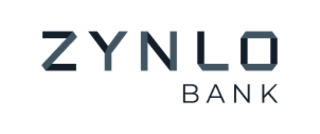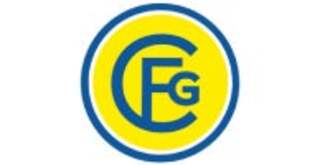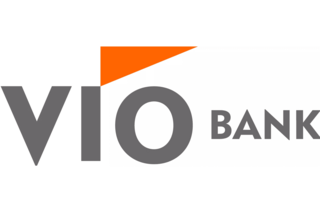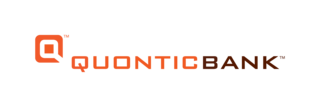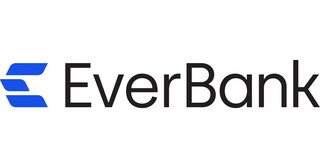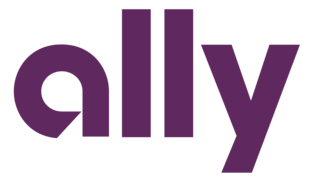Best Banks for Money Market Accounts for 2025
*Rates and APYs are subject to change. All information provided here is accurate as of April 30, 2025.
For your day-to-day spending, you typically want a checking account. And to store cash for the future, you usually want a savings account, preferably one where you earn interest. But sometimes you want a little of both.
Money market accounts (MMAs) function as a hybrid between checking and savings, combining features of both account types. They tend to offer higher interest rates than traditional savings accounts, and many offer debit cards and checks, giving you access to your money that’s more akin to a checking account. Read on for our list of the best money market account rates on the market, as well as a guide on how to choose the best one for you.
What to know about money market account rates
- The interest rate on money market accounts will usually be presented as an annual percentage yield (APY). This figure shows what percentage of interest you’d earn on your money in a year, while an interest rate shows the percentage of interest you’d earn in the account without compounding.
- As is the case with high-yield savings accounts (HYSAs), the APY on money market accounts are variable.
- When banks and credit unions see the Federal Reserve increase or decrease its benchmark interest rate, they tend to do the same to products like money market accounts.
How we chose our top picks
Our editors and writers collected the rates on roughly 60 money market accounts from some of the largest and most popular commercial banks, credit unions and online banks. While APY was the main factor we considered, we also considered minimum opening requirements, balance tiers and more. Unless otherwise noted, these picks don’t have monthly maintenance fees.
Read the full methodology to learn more.
Our top picks for best banks for money market accounts for 2025
The companies listed below are organized in descending order of APY.
- ZYNLO Money Market Account
- First Foundation Bank Online Money Market Account
- CFG Community Bank High Yield Money Market
- Vio Cornerstone Money Market Savings
- Quontic Bank Money Market Account
- UFB Bank Portfolio Money Market
- EverBank Performance Money Market
- Sallie Mae Money Market Account
- Western State Bank High Yield Money Market Account
- Ally Bank Money Market Account
- Unlimited transactions
- Customer service is available seven days a well by phone and in-app messaging
- No overdraft or non-sufficient fund fees
- No physical branches
- No check-writing or debit card capabilities
- APY
- 4.40%
- Minimum opening requirement
- $10
- Minimum balance requirement
- $0.01
- Monthly fee
- $0
Why we chose this company: ZYNLO’s money market account is appealing for its 4.40% APY and ease of use. You only need $10 to open the account, and there’s no minimum balance required to earn the advertised APY. Unlike some banks, you’re not limited to a certain number of withdrawals a month, and there’s no monthly maintenance fee. Although ZYNLO is a division of PeoplesBank, in-person customer service isn’t available. Customer service is available by phone 24/7. There are no overdraft or non-sufficient fund fees, but there are also no check-writing capabilities.
- Debit card and check-writing privileges
- Physical branches in California, Florida, Hawaii, Nevada and Texas
- Cannot be funded through existing First Foundation Bank accounts
- No customer service on Sunday
- APY
- 4.40%
- Minimum opening requirement
- $1,000
- Minimum balance requirement
- $0.01
- Monthly fee
- $0
Why we chose this company: First Foundation Bank offers an attractive 4.40% APY, and the account comes with check-writing privileges, a debit card and mobile check deposit. The high $1,000 minimum opening deposit is one drawback to this account; another is a restriction on funding the account with money from another existing First Foundation Bank account. If you happen to live in California, Florida, Hawaii, Nevada and Texas, you may be able to find a physical branch of First Foundation Bank, but this account is to be opened online, and can be done so from anywhere in the U.S.
- Physical branches in Maryland
- Also offer money market accounts for businesses
- $1,000 opening minimum and balance requirement to earn advertised APY
- $10 monthly maintenance fee unless you maintain a balance of at least $1,000
- No check-writing or debit card privileges
- Funds unavailable for withdrawal for first 30 days
- APY
- 4.32%
- Minimum opening requirement
- $1,000
- Minimum balance requirement
- $1,000
- Monthly fee
- $10 unless you maintain $1,000 balance
Why we chose this company: This account from CFG Community Bank made our list thanks to its attractive 4.32% APY, but it only makes sense to open this account if you’re going to keep at least $1,000. Not only is that the required minimum opening deposit, but if your balance drops below that amount, you won’t earn the APY and you’ll face a $10 monthly fee. It’s also important to note that your funds won’t be available for withdrawal for the first 30 days after you open the account. There are no check-writing privileges with this account. CFG does have brick-and-mortar branches, but only in Maryland.
- Customer service seven days a week
- Higher-than-average on its CDs as well in case you want to pair a money market account with a CD
- No debit cards or check-writing capabilities
- No physical branches
- APY
- 4.31% on all balances
- Minimum opening requirement
- $100
- Minimum balance requirement
- $0
- Monthly fee
- $0
Why we chose this company: Vio, a division of Oklahoma City-based MidFirst Bank, offers a 4.31% APY on every dollar in the account. There is a $100 minimum requirement for opening, which is relatively low, and no monthly maintenance fee. As an online-only bank, Vio doesn’t have debit cards or check writing capabilities, but there is customer service seven days a week (7:00 a.m. to 9:00 p.m Central Time Monday through Friday, 8:00 a.m. to 6:00 p.m. Saturday and 12:00 p.m. to 4:00 p.m. Sunday.)
- Debit card and check-writing privileges
- Access to Zelle via the mobile app
- No overdraft fees
- Limit of six withdrawals per statement cycle
- No customer service on weekends
- External transfer limits that aren’t clear until you have an account
- APY
- 4.25%
- Minimum opening requirement
- $100
- Minimum balance requirement
- $0.01
- Monthly fee
- $0
Why we chose this company: Quontic Bank’s money market account has an APY of 4.25% with no minimum balance requirement and no monthly maintenance fees. It also has a reasonable minimum opening deposit of $100. You get checking-writing privileges and can request a free debit card after having the account open for 30 days. However, there is a limit of six withdrawals per statement cycle. It’s also important to note that the daily and monthly external transfer limits at Quontic range from $2,000 daily to $10,000 monthly, and you’ll have to create an account and login to see what those are.
- Can get a higher APY if you pair with a checking account and meet certain requirements
- Check-writing privileges
- 24/7 customer service via phone or secure messaging
- Many requirements to secure the APY boost advertised if you pair with a checking account
- No physical branches (though customers can visit the headquarters in San Diego, California)
- $10 monthly maintenance fee unless you maintain a balance of at least $5,000
- APY
- 4.01%
- Minimum opening requirement
- None
- Minimum balance requirement
- None
- Monthly fee
- $10, waived if you maintain a balance of $5,000 or more
Why we chose this company: UFB Direct, an Axos Bank brand, has an attractive 4.01% APY and check-writing privileges. Although there’s technically no minimum amount to open the account and earn interest, you’ll have to pay a $10 monthly maintenance fee unless you maintain a balance of at least $5,000 — which is on the high side. You can also boost your APY 0.05% by opening a checking account and setting up direct deposit that totals $5,000. You can earn an additional 0.10% if you maintain a balance of $10,000 in the MMA, and another 0.05% if you make 10 debit card transactions per cycle.
- Debit card and check-writing privileges
- Access to Zelle via the app
- No ATM fees, and $15 reimbursement fees for fees paid at other U.S. ATMs each month
- $10,000 balance required to earn advertised APY
- No customer service on Sunday
- APY
- 4.00%
- Minimum opening requirement
- $0
- Minimum balance requirement
- $10,000
- Monthly fee
- $0
Why we chose this company: EverBank’s money market account has a competitive 4.00% APY, but a very high $10,000 minimum balance requirement to earn that rate. Balances below that amount just earn 2.02%, which is not a competitive rate in today’s market. There are no fees for ATM use, overdrafts or debit card replacement. The bank will also reimburse you for fees paid at other ATMs up to $15 per month.
- Check-writing privileges
- Mobile app where you can also easily manage a HYSA or CD
- $5 for check orders after account opening
- No debit card
- No customer service on weekends
- APY
- 3.90%
- Minimum opening requirement
- $0
- Minimum balance requirement
- $0
- Monthly fee
- $0
Why we chose this company: Sallie Mae’s money market deposit account comes with a competitive 3.90% APY on all balances with no minimum opening requirement. You can deposit checks via mobile, but there are fees for other services, including $5 for check orders (though the first order is free if you place it when you open the account).
- 10 free withdrawals per month
- Also has a Treasury Market Account (that can only be opened in a brach) and business money market accounts
- No check-writing privileges or debit card
- This is the only online account the bank offers
- APY
- 3.75%
- Minimum opening requirement
- $5,000
- Minimum balance requirement
- $0
- Monthly fee
- $0
Why we chose this company: Western State Bank may be based in North Dakota, but you can open a money market online that offers a competitive 3.75% APY on all balances. While the lack of a minimum balance requirement is a plus, this account also has several drawbacks. Its $5,000 opening requirement is high and access to the account is limited, since there is no check writing or debit cards. The first 10 withdrawals are free; many MMAs limit that to six.
- Debit card and check-writing privileges
- 24/7 customer support
- No overdraft fees
- Lowest APY on our list
- Don’t have access to buckets and boosters features
- APY
- 3.60%
- Minimum opening requirement
- $0
- Minimum balance requirement
- $0
- Monthly fee
- $0
Why we chose this company: Ally may be popular for its HYSA, but its money market account is also worth considering, thanks to its 3.60% APY and lack of a minimum opening requirement, balance requirements and monthly maintenance fee. This account has a debit card and check-writing privileges. Ally is one of the best-known online banks and that’s in part to its wide range digital offerings, including 24/7 customer service via phone, chat and email. However, some of its checking and savings account features — including savings buckets and roundups on purchases that automatically transferred to your account — aren’t available with the money market account.
Other money market accounts we considered
We assessed many HYSA accounts that ultimately did not make our list. Below are several companies that were not named on our list but have attractive APYs and may be a fit depending on your needs.
Discover Money Market Account
Discover’s money market account offers access to ATMs, debit and checks and has very few fees. It’s a solid option for savers, but it didn’t make our list because its APYs of 3.50% for balances under $100,000 and 3.55% for balances over $100,000 is lower than the others on our list.
Bank5Connect Connect Money Market Account
Bank5Connect’s money market account has a $100 minimum opening requirement and a $100 balance requirement to earn the advertised interest rate, and it comes with a checking-writing capabilities and a debit card. However, the 3.03% APY is lower than what other high-yielding money market accounts offer.
What you need to know about money market accounts
Money market accounts (MMAs) are a type of savings account that also have checking-like capabilities. They often offer higher interest rates than traditional savings accounts, as well as easier access to your money.
How does a money market account work?
MMAs work similarly to other types of interest-bearing deposit accounts. Interest is typically compounded daily and delivered monthly. Many MMAs also have some checking account-like features like check-writing privileges and debit cards you may find helpful if you want more access to your money than savings accounts provide.
While many savings accounts, especially from online banks, have no minimum opening requirements, these requirements are more common with MMAs. Since they can vary widely, from $50 to $2,500 or more, you should shop around if you plan to start with a small balance. There may also be a separate minimum balance to earn the advertised APY.
MMAs may limit the number of transactions you can make via debit cards, checks or transfers. The Federal Reserve used to require banks to limit withdrawals to six transactions per month.Although it did away with that requirement in 2020, some banks still enforce that limit.
How to open a money market account
Opening a money market account at a bank or credit union is fairly simple, and can often be done online. Here’s a step-by-step guide:
- Choose the right account: You’ll want to consider factors such as transaction limits and fees. More on how to make this decision can be found below.
- Provide your personal information: Like when you open other types of savings and checking accounts, you’ll need to provide your Social Security number, contact information and proof of identity to open an account.
- Deposit your money: With MMAs, you’ll often need to make a minimum deposit to get started. Make sure to also deposit the minimum balance required to get the advertised APY.
How to choose a money market account
There are several factors you’ll want to consider when choosing an MMA, including:
- Fees: Fees can eat away at the interest you’re earning on your cash. Look for an account without monthly maintenance fees and with low fees on other services you may require.
- Minimum opening requirement: This will vary widely by account. If you’re planning to deposit $2,000 into your MMA right away, a $1,000 opening requirement won’t be a problem. But if you’re starting out with a $100 deposit, you want an account that will allow you to do so.
- Minimum balance requirement: Some MMAs will advertise an APY that’s only available if you keep a certain minimum balance.
- Balance tiers: MMAs also often offer higher APYs for higher balances. Look for one that offers the best APYs on the amount of money you plan to keep in the account to get the most bang for your buck.
- Withdrawal restrictions: Some MMAs limit the number of withdrawals or transactions you can make in a month. Make sure these limits won’t get in the way of your banking needs.
- Features: MMAs can be more convenient than savings accounts because of their checking-like features. Look for debit card access and check-writing if you plan to use your MMA like a checking account.
- Convenience: If you are someone who likes to speak to a bank teller in person, choose a brick-and-mortar financial institution. If you prefer to manage your account online, find a bank or credit union with strong digital capabilities and a mobile app.
Alternatives to money market accounts
Depending on your needs, a different type of savings or investing account may make more sense. Here are some alternatives to an MMA:
- HYSA: A high-yield savings account can be a good way to earn interest on your emergency fund or short-term savings. But they don’t have the checking-like features of money market accounts.
- Certificate of deposit (CD): Certificates of deposit tend to offer higher interest rates than MMAs or HYSAs, making them more appealing to some people. But they also require you to lock up your funds for a certain amount of time — typically three months to five years — or have to pay an early withdrawal penalty.
- Investing account: MMAs can be a good way to keep your money easily accessible, and deposits are protected up to regulatory limits. But if you want potentially higher yields and have a time horizon of several years or more before you expect to need the funds in the account, you might want to put it in a taxable brokerage, individual retirement account (IRA) or another type of investing account instead.
How we chose the best banks for money market accounts
To find the best money market accounts, we collected APYs from around 60 of the largest and most popular banks, credit unions and online banks. We assessed what the APY was for each balance tier, and determined whether the advertised APYs were introductory promotions.
While APYs were our main focus, we also collected information on the accounts’ minimum opening deposits and fees.
Latest money market rates news
Banks and credit unions have been cutting their interest rates on savings accounts such as money market accounts over the last year, following the Federal Reserve’s cuts to its benchmark federal funds rate. While the Fed held rates steady at its last meeting, it also indicated that it expected to cut rates two times this year, which means that the interest rates on money market accounts are likely to fall, as well.
Best money market account rates FAQs
What is a money market account?
What are the best money market account rates?
Are money market interest rates fixed?
Are money market accounts FDIC insured?
Are money market accounts taxable?
Summary of our top picks for best banks for money market accounts
- Vio Cornerstone Money Market Savings
- ZYNLO Money Market Account
- First Foundation Bank Online Money Market Account
- CFG Community Bank High Yield Money Market
- Quontic Bank Money Market Account
- UFB Bank Portfolio Money Market
- EverBank Performance Money Market
- Sallie Mae Money Market Account
- Western State Bank High Yield Money Market Account
- Ally Bank Money Market Account



